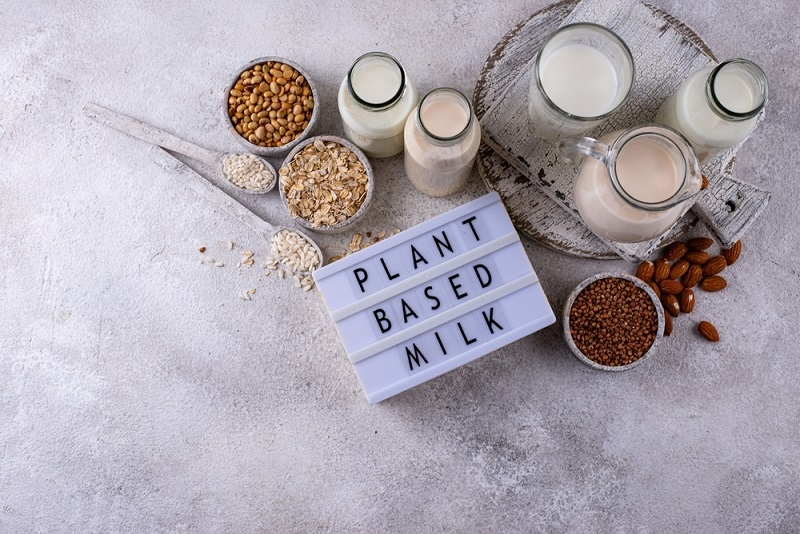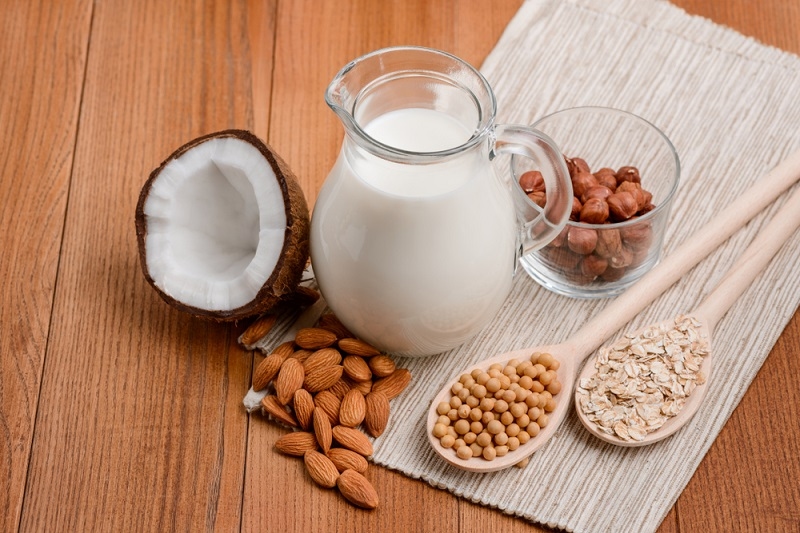
Plant-based milks are not just alternatives to cow's milk; they offer versatile, nutrient-rich substitutes. That can accommodate a wide variety of dietary needs. Options include almond milk, cashew milk, and macadamia milk. Plant-based milks are filled with essential vitamins and minerals that traditional dairy products may have, without lactose, saturated fat, or cholesterol. Selecting a nutrient-rich plant-based milk option creates a healthy option for heart health, weight loss, and overall health status. If you are looking for dairy-free milk, either for recipes, smoothies, or everyday pours, knowing the differences between these options will help you educate yourself about healthier dietary choices.
Plant-based milk combines water, plant parts, nuts, seeds, legumes, or grains. It no longer contains lactose, which makes it an option for individuals who are lactose intolerant or have allergic reactions to milk. The nutritional content varies depending on the source: some are surely high in protein, like soy milk, while others provide wholesome fats, including almond and macadamia.
Best plant-based milks provide fortified nutrients like calcium, vitamin D, and B12, ensuring you acquire key nutritional benefits even without cow’s milk. They are also available in unsweetened or flavored types, giving clients flexibility for fitness-aware or flavor alternatives.
Read More: Vegan Food Philadelphia: Top Vegetarian-Friendly Restaurants

Almond milk is one of the most popular plant-based milks. Made by mixing almonds with water, it is a low-calorie alternative to traditional dairy milk. Almond milk is rich in diet E, an effective antioxidant that facilitates skin fitness and immune function. It’s also low in sugar and saturated fat, making it appropriate for weight management.
Dairy alternative milk, like almond milk, can also improve coronary heart fitness because of its monounsaturated fat content. It’s flexible, results easily integrated into espresso, cereals, baking, and smoothies, making it a sensible choice for everyday nutrients.
Cashew milk is a nutritious non-dairy milk alternative. It is acknowledged for its creamy texture and slight flavor. Cashew milk is produced by mixing cashews and water and contains healthful fats, nutrients, and minerals that could support cardiovascular and brain fitness. It has much less LDL cholesterol than cow’s milk and is low in LDL cholesterol, making it perfect for a heart-healthy weight-reduction plan.
Due to its natural creaminess, cashew milk blends well into espresso, sauces, and cakes. Many brands supplement cashew milk with calcium and vitamin D to support bone health, making it a dairy-free milk that’s both delicious and nutritious.
Macadamia milk is an increasingly famous plant-based milk for those seeking a smooth, subtly nutty taste. It is made with the resource of blending macadamia nuts with water and gives a higher awareness of coronary heart-healthy monounsaturated fats than many other nut milks. Macadamia milk is a low-carb, natural, lactose-free option for coffee or keto or low-carb diets.
Dairy alternative milk, including macadamia, can be enjoyed in espresso, cereal, or baking. Its full-bodied richness and creaminess are comparable to traditional dairy, creating an expensive, nutrient-dense choice for casual use!
Choosing the right dairy product milk is more than about taste; it also involves facts about vitamins, labels, and intended use. Listed below are a few key elements to keep in mind:
Considering these elements, you can make informed decisions that satisfy both ends of the spectrum of taste and dietary preference.
Plant-based milks provide greater than certain dietary benefits and have a sizeable effect on environmental sustainability. Compared to traditional dairy, options like almond, oat, soy, and cashew milk generally require fewer resources, including water and land, and produce lower greenhouse gas emissions. For example, one liter of almond or oat milk generates much less carbon than cow’s milk, even with less land.
Additionally, plant-based milks promote sustainable farming practices and promote biodiversity by decreasing the need for intensive farm animal farming. Choosing plant-based alternatives can also reduce water pollution associated with conventional dairy farming, such as runoff associated with fertilizers and manure.
When consumers incorporate these milks into their daily lives, they can actively decrease their environmental impact while enjoying delicious and nutritious foods. The growing popularity of plant-based milks is a critical piece of sustainable living within a food system.
Plant-based milks can be incorporated as a replacement into many food items to maintain flavorful experiences while not sacrificing nutrition.
These suggestions make implementing plant-based milks into basic foods easy without flavor and nutrition limitations.
Despite their growing reputation, misconceptions about plant-based milks persist.
Myth 1: They lack protein.
Myth 2: They are entirely of sugar.
Myth 3: They are nutritionally insufficient.
As you can see from these statistics, consumers can make intelligent and educated decisions about their food plan.
Recommended Article: Explore Diverse Dining in Philadelphia’s Chinatown
It's essential to shop and use your preferred plant-based milk to maintain freshness, flavor, and nutrition. Decide on almond, oat, soy, or cashew milk, understand the most considerate approaches to refrigeration, shelf life, and how to cope with spoilage and waste, and learn how to use those milks in cooking, baking, and drinks to enhance taste and texture, too. With simple recommendations and thoughtful practices, you can enjoy plant-based milks and maximize their delicious and nutritious benefits.
These simple practices help preserve taste, texture, and nutritional benefits, improving your experience with plant-based milk.
Knowing your plant-based milk options allows you to make educated food and drink choices that benefit your health and the environment. You can receive essential nutrients while minimizing your environmental impact by selecting options such as almond, oat, soy, or cashew milk. There are various ways to use these milks in your daily diet, whether for everyday food, baking, or beverages.
It can easily mold how you think about food and allow you to create healthier habits by being more conscious of your choices. Making those smarter choices would yield taste and nutrition that benefit you, help you reflect on your preferences, and help lower the negative impact on the environment.
This content was created by AI